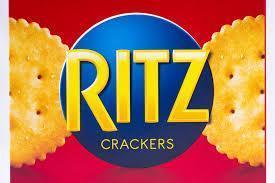As any senior executive of a national or multinational corporation will attest to, having accurate information concerning the consumption and perceived value of your product is absolutely essential.
When it comes to food products, that product trust has an even tighter bond because of the impact on health (or potential damages to health). Product recall expenses can run into the tens of millions of dollars in lost revenue and the expense of physically removing the product from shelves and the distribution channel.
 The perceived threat and associated costs, in this case salmonella poisoning, outweighed the cost of doing nothing. The losses could have ranged from short term financial to long term loss of brand trust. The impact of loss of brand trust would then be reflected in the share price (for public companies). The unknown in this case does not seem to be with Modolez International but with one of the suppliers that provides an ingredient to the Ritz product line.
The perceived threat and associated costs, in this case salmonella poisoning, outweighed the cost of doing nothing. The losses could have ranged from short term financial to long term loss of brand trust. The impact of loss of brand trust would then be reflected in the share price (for public companies). The unknown in this case does not seem to be with Modolez International but with one of the suppliers that provides an ingredient to the Ritz product line.
Major companies, as well as small producers, looking to avoid costly recalls (or worse yet, lost brand equity) are now taking a proactive approach to ensure a trackable supply chain through implementing block chain. The solution is to work with suppliers that can adhere to strategy, tactics and transparent infrastructure to provide certainty in the entire ecosystem.
To the credit of Mondolez International (the parent company of the Ritz Brand), they took the steps to remove the potential threat from the 16 products impacted even though there has not been a complaint of illness as of this writing.


You must be logged in to post a comment.